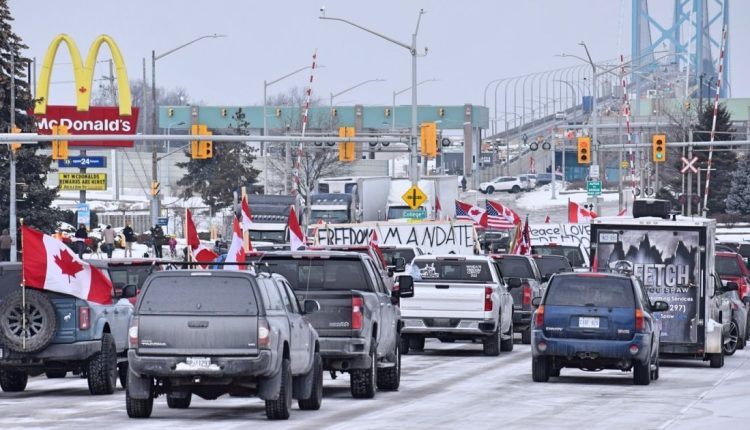As the demonstrators occupy the road leading to the bridge, the CBSA is encouraging truck traffic to use the Bluewater Bridge in Sarnia, Ont., about 90 minutes north of the Windsor crossing.
But that will undoubtedly mean delays in shipments of all kinds.
The Canadian Vehicle Manufacturers’ Association, which lobbies on behalf of the Detroit Three automakers in Canada, is calling for an immediate end to the protests.
“Blockades at Canada’s borders are threatening fragile supply chains already under pressure due to pandemic related shortages and backlogs,” CVMA CEO Brian Kingston said in a statement. “We are calling on cooperation from all levels of government to resolve this situation and bring an immediate end to these blockades.”
Kingston called the crossing “a key conduit for motor vehicles and parts, Canada’s second largest export.”
“Auto production relies on efficient supply chain logistics for delivery of parts, components and vehicles,” he said. “Persistent delays at the Ambassador Bridge risk disrupting automotive production that employs tens of thousands of Canadians.”
So far, the blockade has not impacted production for General Motors.
“We are aware of the situation and working closely with our logistics providers to mitigate any production disruptions,” spokesman Daniel Flores on Tuesday told Crain’s Business Detroit, a sibling publication of Automotive News Canada.
A Stellantis spokesperson said the automaker is “monitoring the situation.”
Flavio Volpe, head of the Automotive Parts Manufacturers’ Association, said in an interview that Canada’s auto industry could withstand a two-day closure of the bridge before it affected supply and shipments.
In a post on Twitter, he called it “a brain-dead move” by protestors
“Blocking the Ambassador Bridge could create a daily shortage of about C$300M ($236 million USD) goods and raise prices on both sides of the border,” he warned.


